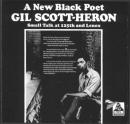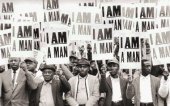I'm coming from a place of delusions and being blinded
I been around it
I hear it now
It's coming loud the sound of sirens
Of all of the places how is this where I end up?
Oh, hated for what I am and loved for what I'm not
Truth is that all men are equal
But I know
Equal for my kind of people ain't what they show
I'm crying oh, oh
Oh, oh
Oh, oh
I wonder when we will grow
I'm coming from a place of frustrations from realizing
Realizing
And it's opened my eyes
We act like it ain't there and try to hide it
But we're divided
Of all of the places how is this where I end up?
Oh, hated for what I am and loved for what I'm not
Truth is that all men are equal
But I know
Equal for my kind of people ain't what they show
I'm crying oh, oh
Oh, oh
Oh, oh
I wonder when we will grow
Truth is that all men are equal
But I know
Equal for my kind of people ain't what they show
I'm crying oh, oh
Oh, oh
Oh, oh
I wonder when we will grow
I been around it
I hear it now
It's coming loud the sound of sirens
Of all of the places how is this where I end up?
Oh, hated for what I am and loved for what I'm not
Truth is that all men are equal
But I know
Equal for my kind of people ain't what they show
I'm crying oh, oh
Oh, oh
Oh, oh
I wonder when we will grow
I'm coming from a place of frustrations from realizing
Realizing
And it's opened my eyes
We act like it ain't there and try to hide it
But we're divided
Of all of the places how is this where I end up?
Oh, hated for what I am and loved for what I'm not
Truth is that all men are equal
But I know
Equal for my kind of people ain't what they show
I'm crying oh, oh
Oh, oh
Oh, oh
I wonder when we will grow
Truth is that all men are equal
But I know
Equal for my kind of people ain't what they show
I'm crying oh, oh
Oh, oh
Oh, oh
I wonder when we will grow
Contributed by Bernart Bartleby - 2017/12/2 - 21:01
×
![]()
Note for non-Italian users: Sorry, though the interface of this website is translated into English, most commentaries and biographies are in Italian and/or in other languages like French, German, Spanish, Russian etc.










Scritta da Algee Smith (1994-), attore e cantante afroamericano
Interpretata da Algee Smith con Larry Reed, membro fondatore del gruppo R&B The Dramatics.
Nella colonna sonora del film “Detroit” (2017), diretto da Kathryn Bigelow e scritto da Mark Boal.
Il film della Bigelow ricostruisce i drammatici giorni della rivolta di Detroit nell'estate del 1967, che su queste pagine è già stata ampiamente descritta nelle introduzioni a Motor City is Burning di John Lee Hooker e Dancing in the Street di Martha Reeves & The Vandellas, due brani assolutamente memorabili.
In particolare, la regista - autrice di film come “Point Break”, “Strange Days” e “The Hurt Locker” - nella sua ricostruzione di quegli eventi parte dalla strage al Motel Algiers dove, nella notte tra il 25 ed il 26 luglio 1967, nel pieno dei disordini scoppiati in città, un gruppo di poliziotti uccise tre giovani di colore che, come altri, lì si erano rifugiati per sottrarsi alle violenze in atto in città. In quell'occasione erano presenti anche due ragazze bianche, Julie Hysell e Karen Malloy, e alcuni membri della band The Dramatics, tra cui Larry Reed che nel film è interpretato da Algee Smith, autore di questo brano.
"Il mio socio Mark Boal, con cui ho scritto tutti i miei ultimi film, me ne ha parlato nel 2015, proprio nel periodo delle sommosse di Ferguson in seguito all'omicidio di Michael Brown e l'assoluzione del poliziotto Darren Wilson. La storia dell'Algiers Motel ha risuonato subito nella mia mente. Ricordavo la ribellione di Detroit in quell'estate calda del '67, ma non l'Algiers. La rabbia che mi ha provocato è stata forte, anche perché sono passati 50 anni e mi sembra che le cose qui negli Stati Uniti non siano cambiate molto. Detroit vuole essere un film contemporaneo. E capace di provocare rabbia ".
Nel cinema drammatico "liberal", come dicono a Hollywood, i conflitti razziali trovano in genere una catarsi finale, una risoluzione edificante, come in "Crash": nel suo film non c'è traccia di questo.
"Assolutamente no. C'è solo la rabbia per l'ingiustizia, l'ignoranza, i giochi di potere, e la speranza che dalla bruciante ferita emerga una discussione costruttiva e anche una forma di guarigione. Non credo alle facili catarsi artistiche. Non quando si tratta di storie vere come quelle odiose e inumane dell'Algiers. Non voglio suonare arrogante e pretendere di dire al pubblico come sentirsi al riguardo, per carità. Dico solo che la rabbia è una risposta appropriata, che va affrontata.
Detroit è un film rabbioso. La segregazione fisica, economica, culturale che divide questo paese esiste. Oggi come allora ".
In fase di ricerca ha parlato coi testimoni di quei fatti?
"Non coi poliziotti, di cui due erano già morti. Con Mark Boal ci siamo basati soprattutto sulle trascrizioni degli interrogatori e delle fasi processuali, con l'inevitabile verdetto di non colpevolezza - ma non voglio rovinare la sorpresa. Ci sono moltissimi documenti e immagini d'archivio cui abbiamo potuto accedere grazie al Freedom of Permission Act Request. E ci hanno aiutato tantissimo le due ragazze, che adesso hanno la mia età, che si trovavano col gruppo di ragazzi neri quella notte all'Algiers: Julie Hysell e Karen Malloy, malmenate dalla polizia che vennero prese per "perverse" dedite al sesso "misto", quando si stavano solo divertendo in maniera innocente, come tutti gli altri. Poi c'è il libro sul tema di John Hersey, vincitore del Pulitzer, che però non ho potuto citare ufficialmente perché non abbiamo avuto i diritti".
L'Algiers non esiste più, vero?
"No, è stato da tempo raso al suolo, e al suo posto c'è un campo incolto, squallido, triste, dove cresce la gramigna. Uno spazio vuoto nel mezzo di un quartiere in rovina. Non c'è nemmeno una targa. La memoria è così corta". (Intervista di Silvia Bizio a Kathryn Bigelow, su La Repubblica)